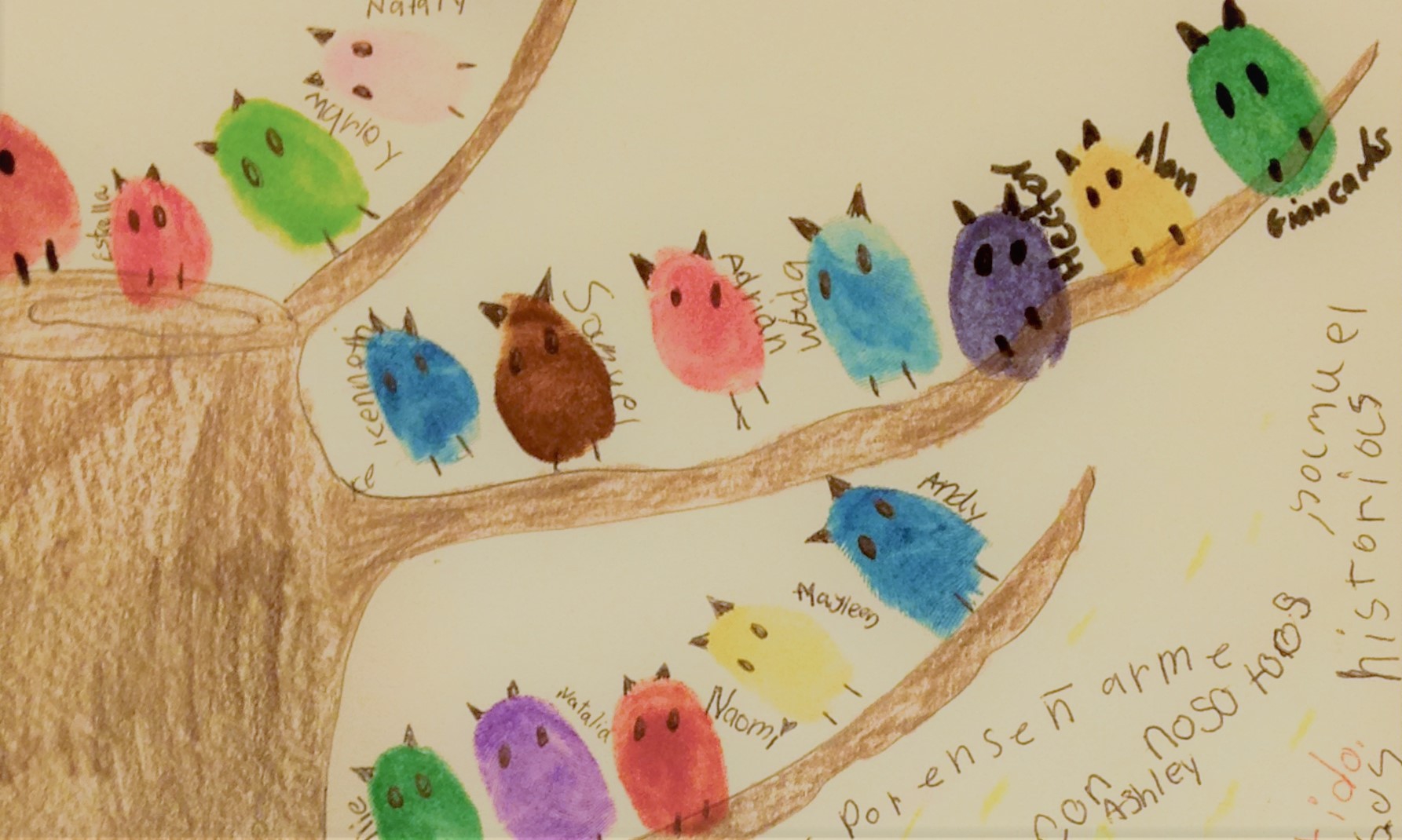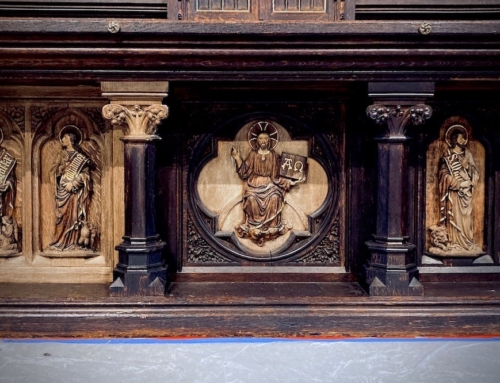Earlier this month I was part of a week-long school-wide mosaic project. Every student from pre-K through 8th helped to place tiles depicting an enormous Sacred Heart, a whole mix of Mexican tile, pieces of colored glass, accented with religious medals and even coins from their countries of origin (or the D.C. Metro). I became so engrossed in the process and the patterns, that one day I worked for seven hours straight, stopping only to stand on my step ladder at lunchtime and eat a yogurt given to me by a student. As much as I felt trapped in the work, it was also liberating to give so much attention to creation, then to see it slowly take shape. The kids loved it too. One first-grader exclaimed when her mom picked her up from school, “I helped!” Indeed you did. And indeed it mattered.
To my mind, this is what art should be, something to adorn a well-used placed, something to represent and express the lives of the people who pass by it every day, and not something to be enshrined in a museum or reserved for a special audience. In fact, workers were enlisted to add extra grout and veneer to strengthen the mosaic, not only against weather but soccer balls. The artwork takes up the wall space which normally acts as the soccer goal during recess, and that won’t change even with the new mosaic. “For thus says the Lord… the designer and maker of the earth, who established it not as an empty waste, but designing it to be lived in” (Is 45:18).
I read an essay years ago by the Colombian novelist Gabriel Garcia Marquez. He recalls that when Columbus arrived on those American shores, early accounts describe that every person of the native Muisca tribe wore gold jewelry. All the people, rich and poor, had covered their bodies in gold nose rings, bracelets, earrings, knee ornaments, etc. Marquez comments: “Their creative maturity had proposed incorporating art into everyday life, which is perhaps the greatest destiny for the arts.”
The same holds true for the musical arts. I just heard from a Dominican brother of mine about the organization called Groupmuse, which organizes classical chamber music concerts in people’s living rooms! Not only is the cost kept to about $10 with wine and appetizers included, but the musicians themselves apparently say they love this setting far more than the concert hall.
Art is an everyday and every human affair. That’s not to say Renaissance masterpieces found in the Uffizi Gallery aren’t worth the trip or the ticket fee, rather that art isn’t simply that. It’s simply something more simple. Aquinas relegated the virtue of art to one of the five intellectual virtues. It’s the creative ability each of us have to make and arrange things. It is that godlike quality in each of us, for God is a creator, and we are all little creators in our own way. We are made, and we are also makers. That includes simple things like choosing our words in conversation, matching our clothes, or cooking breakfast. And it involves every flourish in life, like arranging flowers, humming a song, building Legos, or carving a jack-o-lantern to burn and sneer on the porch.
Lest this seem like an esoteric philosophic point, made only by adults such as me, I’ll finish by citing a child who thinks the same. A grade school is a place full of artists. (See as evidence the above photo for a thumbprint thank-you card, made for me by last year’s First Communion students.) I was recently teaching the Creed to second grade when, due to schedule shifts, we wound up with 30 minutes of free time to spare. So out came the crafts and coloring books, and I joined in. To my right sat a second-grader who effusively complimented how I stayed in the lines: “You’re so good at that!” It’s just coloring, but ok, I thought…Minutes later, he finished his own project, a cut-out paper crown, and placed it on my head. “That looks good!”
“What am I the king of?” I asked. He shrugged his shoulders, having no answer. So I tried, “Maybe I can be the king of art.”
“You can’t be the king of art,” came the surprised reply.
“Why not?” He had to think about it…and then…
“Because everybody is creative. There can’t be just one king.”
How egalitarian for a child of seven. And how deeply true.
✠







